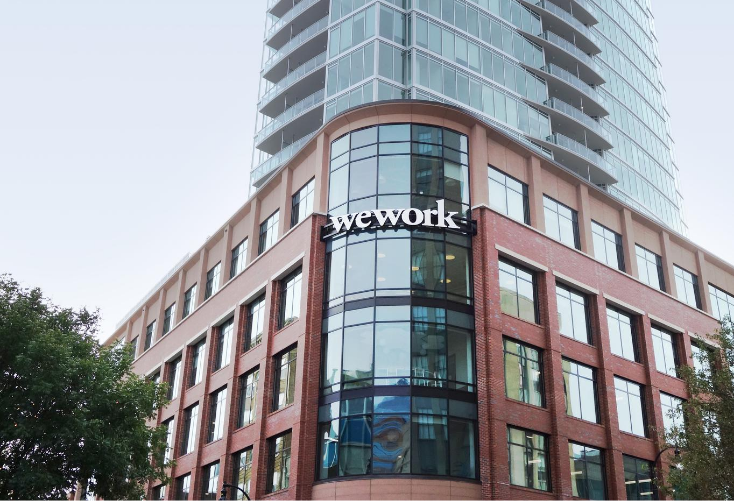Hand selected flexible workspace news from the most reliable sources to keep you ahead of the pack. We find all the latest news, so you don’t have to. Morning and afternoon updates. Stay in the know.
Here’s what you need to know today:
- An Affiliate of Regus Corp. Files For Chapter 11 NEW
- Flexible Office Firms Move Forward With Expansion NEW
- Hybrid Working Is The Ideal Solution NEW
- What To Expect From The APAC Office Market
- UK Flexible Office Market Falls Behind In Europe
- WeWork Forced To Restructure Major London Lease
An Affiliate of Regus Corp. Files For Chapter 11
RGN-Group Holdings, an affiliate of Regus Corp., filed for Chapter 11 protection this week, stating that the shift to remote working has damaged demand for its flexible workspaces.
“With the near universal adoption of work-from-home policies, either voluntary, or government-mandated, by U.S. businesses during the early months of the pandemic, demand for temporary office space has been depressed, which I understand resulted in lower occupancy rates than were anticipated when the company decided to make certain investments in the centers,” said James S. Feltman of financial advisory firm Duff & Phelps.
The initial case filings revealed that several other affiliates had filed their own petitions as they did not have the ability to uphold lease obligations to landlords due to losses caused by the pandemic.
RGN-Group Holdings will use the Chapter 11 to negotiate new lease terms and protect occupants from the ongoing interference the business is undergoing. The group owes parent company Regus $427 million for working capital loans that are used towards furniture and equipment used for the office space.

Flexible Office Firms Move Forward With Expansion
Major flexible operators are looking to push forward with expansion plans in order to take advantage of potential upcoming opportunities for the industry.
For example, IWG recently took up 30,000 square feet in Hong Kong, while Serendipity Labs and Industrious are looking to expand as well.
Ben Munn, managing director at flexible space of JLL, said that operators who were in a strong financial position prior to the pandemic are able to take two paths in expanding: acquiring business from struggling competitors or taking over space from other operators.
“In some cases, the previous operator has exited their lease, or in others collapsed the special purpose entity holding the lease, leaving the landlord with no recourse,” said Munn. “Or it may simply be that an operator presented unfavourable terms to the landlord for renegotiation and the landlord is taking the opportunity to restructure the workspace proposition in the building.”
The ongoing pandemic is putting pressure on tenants, but makes it difficult to indicate what their property needs are. Munn added this puts flexible office companies in a good position as they offer flexible leases, lower costs and allow organizations to scale up or down as needed.

Hybrid Working Is The Ideal Solution
Major tech companies have recently announced they will be expanding their remote working options. For instance, Google revealed that employees will be able to work from home until at least the summer of 2021.
For years, companies took out long-term office leases for their main business hubs to create workspaces with various offices and more. In more recent times, coworking spaces have become a popular option for companies large and small looking to consolidate their real estate portfolio. This shift gave as little as 55 square feet per employee in order to reduce costs while boosting collaboration.
Now, in wake of the ongoing pandemic, these workspaces are not ideal environments due to their dense nature. However, now that companies are transitioning to remote working arrangements, employees may be seeking a work environment outside of their homes that are often riddled with distractions.
That is why it is likely that these offices will reconfigure spaces to emphasize the importance of distancing, privacy and cleanliness.
According to a report from mental health benefits platform Ginger, 70% of respondents were less productive working from home, while 80% of Generation Z and millennials employees felt less connected to their colleagues since working from home.
That is why many companies are looking at a hybrid work arrangement that incorporates working from home with in-office work. Using a combination of both allows companies to reap the benefits of in-person collaboration, as well as the cost-cutting impact of working from home.

What To Expect From The APAC Office Market
The Colliers’ Asia Pacific Office Markets: 1H2020 Review and Five-Year Outlook report offers insight into how demand, rent, supply and vacancy for the APAC office market will look in the future.
According to Andrew Haskins, research executive director of Colliers Asia, APAC office markets are currently struggling with little to no demand and high supply.
“The prospect of conditions favoring tenants for up to three years gives occupiers the chance to lock in good deals in markets like Hong Kong’s Central, Shanghai’s New Bund and Shenzhen’s Qianhai district,” said Haskins. “Investors should focus on popular occupier centers with above average rent growth over five years, such as Singapore, Bangalore, Melbourne CBD and Auckland.”
The report revealed that aggregate absorption in the 19 office markets that were tracked fell 56% in the second quarter of 2020. Additionally, annual absorption over the next five years should be close to 2019’s 6.82 million square meters.
Colliers also predicts that supply in the region throughout this year and 2021 will be three times the aggregate take-up.
Even more, the report suggests that landlords that are competing for limited demand will start reconfiguring their product to accommodate those needs, while also emphasizing the health and safety of their space.

UK Flexible Office Market Falls Behind In Europe
Workers in the UK are returning to flexible offices more slowly than other European countries according to a survey from Workthere.
The findings reveal that occupancy rates in UK flexible workspaces are at 23% compared to 35% in Spain, 43% in Ireland, 55% in Germany and 57% in the Netherlands.
Workthere’s survey also revealed that the flexible office sector in the UK fell behind its European counterparts in other ways. For instance, the UK has the highest nonrenewal rate in the continent at 19%, while 35% requested rent relief.
However, UK operators are expected to see an occupancy rate of 71% by the end of this month, which is the second highest in Europe following the Netherlands at 74%.

WeWork Forced To Restructure Major London Lease
WeWork Property Investors teamed up with Nuveen to purchase Devonshire Square in London in the spring of 2018. The 637,000 square foot building was intended to showcase a new model for the company, but the coworking firm and institutional investors are now being forced to restructure the lease.
During this time, WeWork took up around 20,000 square feet on the campus. The partnership was intended to be the first of many deals where WeWork teamed up with institutions to purchase buildings.
The coworking firm agreed to a revenue-sharing agreement with its partners and would be paid a 10% management fee based on gross revenue, with the remaining revenue split among landlords and WeWork as a tenant.
However, everything changed once the pandemic hit and the performance of the firm came to a screeching halt. Demand shriveled up as millions of employees migrated to remote working positions. In any other occasion, WeWork would have eagerly searched for a replacement for its spaces that had been abandoned.
Now, WeWork is walking away from 15,000 square feet of the space it occupied at Devonshire Square.
“We believe this is largely due to increased vacancy on the estate and reduced income levels from WeWork,” according to S&P. “Given the current uncertainties in the market and the deteriorating occupancy levels of the estate as a whole, we have revised our long-term operating and cash flow assumptions.”

















